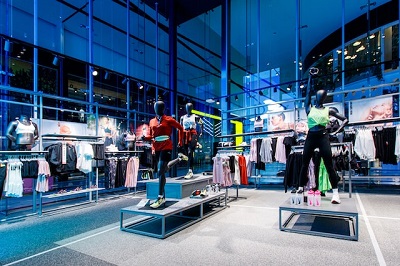

Director: Corporate-911
A few months ago, I wrote an article pointing out that the retail storm many experts predicted was on the horizon had already arrived in full force.
Not only has this storm grown in intensity, but there are no signs of abatement as interest rates increase and disposable income faces increased pressure.
I recently read insights from PwC that paint a perfect picture of the challenges facing the retail space and how urgent interventions are needed to regain stability.
The great disruptors
Economic uncertainties and challenges
The PwC insights point out that, given the stuttering economy, high unemployment and struggling consumers, it is a very difficult environment for retailers, and they need to look for innovative ways to drive growth and increase profits.
In addition, South Africa’s retail stores are facing unprecedented challenges in the context of pervasive load-shedding, growth in on-demand delivery channels, a stabilisation in returning to in-store shopping and an increased focus on cost-saving measures.
Customer demands and shopping expectations
The insights add that as technology continues to evolve, shoppers are increasingly drawn to digital features that can enhance their in-store shopping. This indicates a desire for a more holistic shopping experience that leverages the best of both worlds (an ‘omni-channel’ experience) — a concept that retailers are still wrapping their heads around as they strategize, navigate and prepare to enable competitive advantage.
Customers also demand a seamless online-to-in-store transition through engaging, personalised experiences. Over and above this, they are expecting ‘one-stop shops’ that offer more brands under the same roof. Personal shopping services, where the retailer does the shopping for you at the click of a button and as quickly as possible, feeds customers’ desires for ‘on-demand’ satisfaction. Based on PwC’s The future of grocery shopping, personal online interaction with small retailers has increased, which is resulting in less reliance on the expertise of large retailers. Customers want to stay up-to-date with blogs from their favourite store, online advice in the form of recipes, styling guidance and shopping trends.
Employee expectations
The PwC insights point out that although automation is a key factor in further improving retail efficiency, consumers still seek human interaction and value customer service related to both physical and digital experiences. The key to this is reimagining and redesigning the service operating model to empower front-line staff with the right skills, visibility and access to integrated technology to efficiently and effectively resolve customer queries across multiple channels.

Image By: Craig Lovelidge via Unsplash
According to the World Economic Forum’s Future of Jobs Report 2023, technology adoption will remain a key driver of business transformation in the next five years. The impact of most technologies on jobs is expected to be net positive over the next five years. The human-machine frontier has shifted, with businesses introducing automation into their operations at a slower pace than previously anticipated. The fastest-growing roles relative to their size today are driven by technology, digitalisation and sustainability, not to mention the rise of artificial intelligence enabling automotive processes and increased productivity levels.
The insights add that the consumer markets workforce needs to pivot, but are they actually aware of this? According to PwC’s Global Hopes and Fears – African Perspectives, employees in consumer markets in Africa believe that skills such as digital, analytical, critical thinking, adaptability and specialist technical skills will not be as important within the consumer market context in the next five years as in other industries. In addition to this, these employees are less confident that their employer will provide them with tools, resources or opportunities to develop or apply these skills. 40% of Consumer market employees believe that their current job does not require any specialist training or qualifications, which is a significant difference from other industries. This concern is significant for the industry as organisations aren’t communicating the urgency of adapting to employees’ needs.
A dynamic shift is needed
Revamping brick-and-mortar strategies and business models
The PwC insights point out that there’s a shift happening in retail towards a greater emphasis on how to achieve their outcomes, as opposed to what the outcomes should be. This shift places customers at the centre of the strategy. The internal business outcome is being deprioritised as more organisations realise that customers want to be associated with socially and environmentally responsible organisations that have their consumers at the heart of their efforts.
Omnichannel, truly digital features that enhance the in-store shopping experience are core to their thinking. From the volume of sales to the impact of the experience, a main strategic driver is moving away from a ‘selling products’ mindset to one of providing an experience. Retailers are realising the importance of the brand experience to match how the world is changing. Whether high or low-end, an experience attracts curiosity, enticed by word of mouth and social media. Retailers are investing in providing experiences without the prospect of direct monetisation. One of the important purposes of building communities through these experiences is the potential to gather consumer data and to further use that to enhance experiences that will attract more customers and make the brands better known to the public. Organisations now recognise the value of ethically acquiring data about their target audience using AI. This allows them to improve customer experiences and gain better insights into consumer purchasing habits. They have shifted from collecting personal data for generic advertising towards owning and using behavioural data.
The insights add that maintaining the theme of customer centricity, organisations are becoming more aware of the increased choices their customers have, with smaller businesses offering distinct experiences. They are changing their strategy to include data ownership for a very strategic purpose. From territorial brand exclusivity to offering multiple choices, aside from data ownership, companies are finding ways to increasingly influence the customer journey by creating platform ecosystems rather than single-brand stores. Brands that previously sold their own goods exclusively are now expanding their presence by increasing B2B sales in an attempt to make their products more accessible. In addition, the rise of the metaverse has allowed retailers to sell virtual versions of their products. In other words, companies must know their customers and be able to integrate into their lives to enable an experience that resonates with them. Consumer market companies are delving into strategies that were not historically the norm and are, therefore, experimenting with new points of differentiation to, in turn, provide a distinct customer experience.
Investing in new capabilities
The PwC insights point out that these differentiators require new capabilities driven by deep consumer knowledge and intimacy fuelled by data points and psychological understanding. Retailers should hire for innovative thinking, creativity and specialised digital skills to remain on top of their game. They will need to improve targeted digital capability and embrace automation. Retailers that use sustainability (environmental, social and governance) as a differentiator need to ensure that these are aligned with the strategy and ensure that their capabilities match these ambitions. Retailers are rethinking the packaging they use, energy-friendly processes as well as how they manage waste. Ethical labour practices in stores, particularly working conditions and hours worked, are a top priority, together with considerations with regard to the communities around which they operate and the impact in which they trade.
Employees want to work for organisations that focus on sustainability and drive purposeful impact. These capabilities do not sit in an isolated division of the business but should be integrated into areas of key decision-making to promote the most successful design and implementation of appropriate initiatives. Human behavioural science indicates that one of the key ways to leverage behavioural data is to analyse it accurately and in detail. Because people are complex beings, it becomes critical that those tasked with concluding the data are familiar with consumer behaviour and equipped to draw profound trends and make noteworthy contributions.

Image By: Firmbee.com via Unsplash
Changing ways of working and retail operating models
The PwC insights add that adapting the operating model to suit the strategic direction is usually last on the list for organisations to effect change, not fully understanding the immense power of the operating model on the accomplishment of goals. This must be initiated with speed for organisations who want to remain competitive — five years is too far into the future to plan for, and incremental, gradual change will only delay the achievement of results. In the same spirit, the operating model itself must enable quick decision-making, and governance structures must promote quick turnaround times whilst still maintaining a sense of expert review.
Change how employees are measured to see different outcomes: We see organisations that continue measuring employee performance in the same old ways do not achieve at the same level as those who reimagine their processes to drive their new strategies. Performance management systems must be altered to keep up with the rest of the workforce changes. Critically important is the organisational culture that retailers drive: to authentically live an organisation’s purpose and values and, in turn, achieve its strategy, operating model, and culture must be aligned. Leveraging culture is a powerful way to tap into the emotional and irrational forces that drive an organisation.
Think beyond immediate retail goals
To achieve stability in this increasingly disruptive market, retailers need to think beyond their immediate goal of survival.
Significant investment must be made in systems and processes that enhance the customer experience and cater to their current purchasing needs. This may be challenging and require a young group of executives to receive increased responsibility regarding C-Suite positions. As the PwC article points out, companies must know their customers and be able to integrate into their lives to enable an experience that resonates with them. This can only be done if companies are guided by leaders representing the consumer demographic, which is only getting younger.




